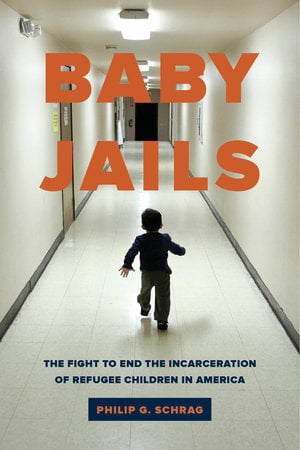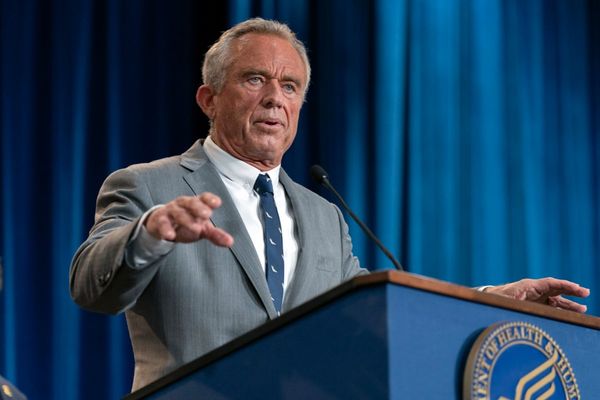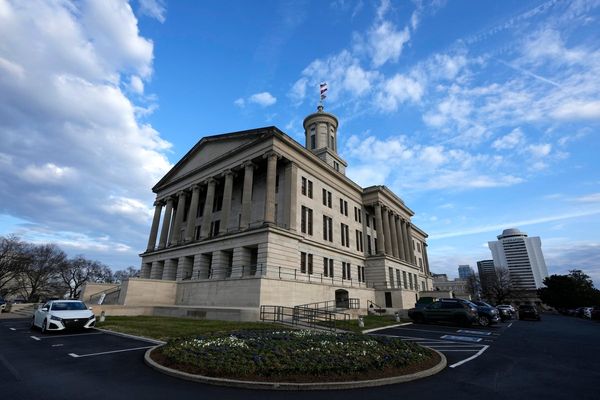Philip G. Schrag has written more than a dozen books over his years as a lawyer and director of the asylum law clinic at Georgetown University. But his latest, Baby Jails: The Fight to End the Incarceration of Refugee Children in America, was the most difficult for him to revise. Schrag struggled to stay up to date as the Trump administration changed its immigration policies on a near-daily basis. “I was writing and rewriting up to the last minute,” he told the Observer.

The result is a comprehensive dissection of more than 30 years of legal disputes around the detention of migrant children in the United States. It’s also a timely look at the recent perversion of the entire asylum system, decades after Jenny Lisette Flores—a 15-year-old from El Salvador—found herself at the center of the 1997 Flores agreement, a landmark lawsuit which set minimum standards for how long kids can be locked up and under what conditions. Schrag spoke with the Observer about the policy’s uncertain future under the Trump administration and how the issue of detaining families remains largely unresolved today.
Texas Observer: In 2015, you volunteered at a family detention center in Dilley, Texas. How did this experience help shape the book?
Philip G. Schrag: I have written a great deal about asylum and I run the law clinic at Georgetown University, but until that point my contact had been mostly with adult asylum-seekers. I had never seen children in detention before I went to Dilley, and I was shocked to see so many small children, toddlers—4-, 5-, 6-year-olds—in essentially a prison. That moved me to think about the fate of those kids and to start doing research for this book.
In the book, you call the detention of child migrants “a little horror story that is part of a much larger one.” How so?
The United States’ treatment of children who flee from horrific violence to seek safety in America is shameful. When they first arrive in the U.S., they are confined to extremely cold rooms in border stations and given minimal food and medical care. Unaccompanied minors are transferred to the custody of the Office of Refugee Resettlement (ORR), but those who arrive with parents are afforded little protection. If they are lucky they are jailed in Dilley, Karnes [in Texas], or Berks [in Pennsylvania] for about three weeks before being released. Unfortunately, in recent months, many of these families have been forced to wait for their asylum hearings in northern Mexico under very poor living conditions and at risk of being assaulted, kidnapped, and raped. That has turned Mexico into something like a large detention center for asylum-seekers.
Even the treatment of adult asylum-seekers without children has been shocking. The Trump administration has issued a regulation that means that virtually no Central Americans can win asylum [unless they apply for protection in another country on their way to the U.S.]. This regulation makes a mockery of the 1980 law through which Congress created an asylum system for all who seek U.S. protection at its borders. So for a year or more the asylum system has been essentially broken.
The separation of families at the border generated unparalleled public outcry in 2018. In the book, you argue that the blatant cruelty of tearing families apart has been used to justify the use of long-term detention.
First of all, family separation is still going on. Not at the same level of early 2018, but it is still going on. And keeping families together but sending them to Mexico is just as cruel as family separation. Every administration since the Reagan administration has sought to deter migration by treating people badly. While it’s considered legitimate to have incarceration as a punishment in order to deter other people from committing crimes, outside of the criminal justice system it has rarely been thought that it was reasonable to detain people and put them in jail for the purpose of deterring other people from coming to the U.S. In the one case when this came up in court, the judge said that was not acceptable and issued an injunction against it. The Obama administration abided by that order and stopped claiming deterrence as a rationale. The Trump administration has shown no such restraint.
Litigation on the Flores agreement goes back more than 30 years. Are you optimistic about its future?
The Obama administration incarcerated children and sought to incarcerate them for a long period of time—and so has the Trump administration, which passed a regulation overturning the Flores case so they could jail children indefinitely [a federal judge blocked its implementation last year, which the government is currently appealing to the Ninth Circuit]. I don’t think that the courts will uphold the administration’s attempts to allow federal licensing of family detention centers, which would effectively repeal the most important part of the Flores agreement—saying that children can only be detained in state-licensed child care facilities. Nobody knows what the Supreme Court will eventually do.
Family detention is inhumane and costly. What would a more humanitarian processing of migrant families look like?
There should be some temporary regime where the Office of Refugee Resettlement has custody of families with children. ORR has long experience taking care of unaccompanied children; its mandate should be expanded so that it assumes responsibility for families with children as well. The care of children should not be in the hands of Border Patrol, because they’ve done such a bad job with it. Currently, children arriving with their families are turned over by Border Patrol to Immigration and Customs Enforcement (ICE) to be jailed in Dilley or Karnes or sent to Mexico. Neither is a good solution. After processing, families should be released and should be assigned caseworkers who help them understand their rights and obligations, particularly their duty to report to ICE periodically and to go to court. A “family case management system” like this was very successful in terms of assuring that families met these obligations, but was terminated by the Trump administration [in June 2017].
Would you say that your book is partially a tribute to the work of lawyers (like those litigating the Flores case) and community-based organizations?
Definitely. One theme of the book is that, but for the hundreds of immigration lawyers and community activists who have challenged the administration by bringing test cases like Flores and by supporting individual asylum-seekers, tens of thousands of children who won asylum, many of whom later became American citizens, would have been deported, and many would have been murdered.
This interview has been edited for length and clarity.
Read more from the Observer:
-
Questions About Politics in 2020 That Aren’t ‘Will Texas Turn Blue?’ Democrats and Republicans are gearing up for a clash in Texas. Here’s the context you need to understand the coming year in politics.
-
The EPA Faces Lawsuit Over Slaughterhouse Pollution in Waterways: The Environmental Integrity Project and other advocates are suing the EPA for failing to update wastewater pollution standards for meat processing facilities for 15 years straight.
-
A Decade of Texas Health Care By The Numbers: What do 2010 vs. 2019 comparisons tell us when it comes to lawmakers’ priorities on health care?







